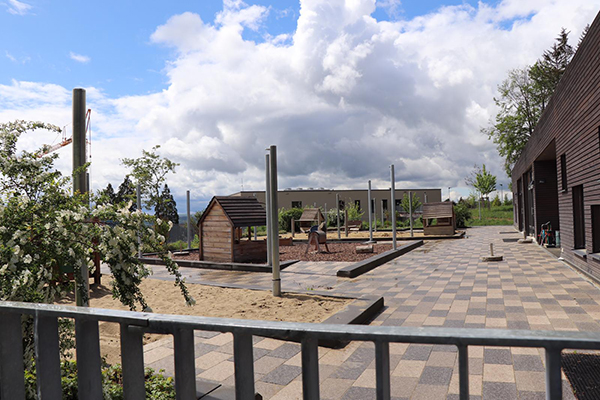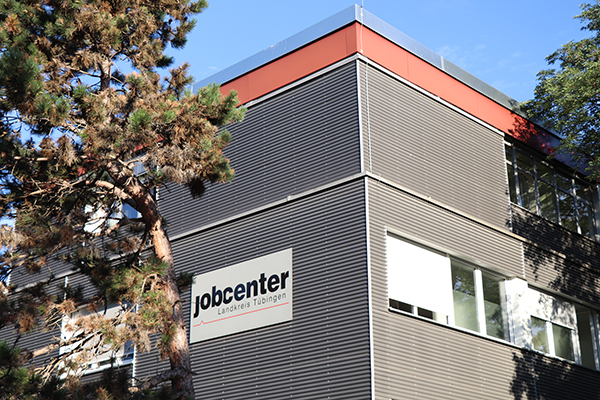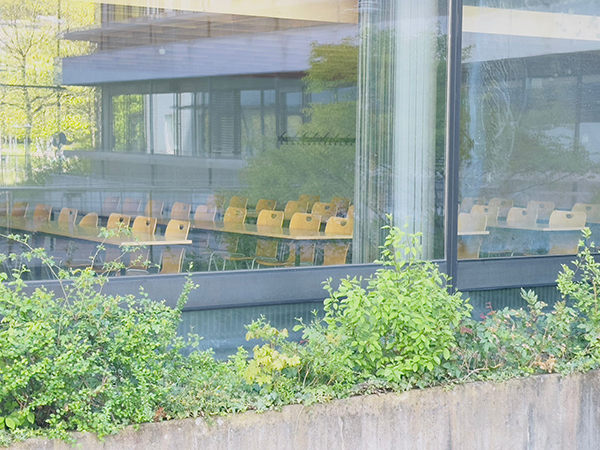Bus instead of train: This applies during the summer vacation from Tuesday, July 30, to Sunday, September 8, on the route between Tübingen and Herrenberg. Due to construction work on the line from Tübingen to Nürtingen, the overhead line at Tübingen main station will be switched off. This means that electric trains cannot run on the Ammertalbahn. Originally, diesel locomotives were supposed to run there. However, DB Regio has announced that it does not have enough diesel trains available. A bridge is being replaced on the line from Tübingen to Stuttgart. For this reason, only buses will be running between… Read More
Category: 6- WORK – ENG
Poor despite having a full-time job: racism increases the risk of poverty
People who are more at risk of racism because they are perceived as black, Asian or Muslim are also at a higher risk of poverty. This is according to the new short report of the National Discrimination and Racism Monitor (NaDiRa), in which this connection was analysed for the first time. Data from 21,000 people was collected as part of a representative survey. While the risk of impoverishment is 9% for non-racist men and 10% for women, this applies to 26% of black men and women, 30% and 26% of Asian men and women and 41% and 38% of Muslim… Read More
Works council: support in the workplace
Works councils are there to represent the interests of the workforce in a company. The committee has a say in many decisions in the company—for example, overtime regulations. In companies with more than five employees, employees can elect a works council. This has been regulated in the Works Constitution Act since 1952. Elections are held every four years. However, there is no obligation to set up a works council. Further information is available from the German Trade Union Confederation DGB: https://www.dgb.de/betriebsrat Works councils monitor whether laws and regulations are complied with in a company—for example, accident protection or collectively agreed… Read More
More foreign qualifications recognized
More and more foreign professional qualifications are being recognized in Germany. This is according to an analysis by Mediendienst Integration. In 2022, a total of 54,300 applications were approved in full or in part—eleven percent more than in the previous year. The majority of recognitions were for documents from EU countries (11,800), followed by other European countries (10,900). The number of recognized qualifications from Syria (3,100) ranks behind Turkey (3,600). According to Mediendienst Integration, the number of applications almost doubled between 2019 and 2022. The data was collected by the Federal Statistical Office. Three out of four applications come from… Read More
Kita lingua: Language course for future nursery teachers
In October 2024, a language course will start for people with a migration background who want to train as nursery teachers in daycare centers. The project is a cooperation between the University of Tübingen and the city administration. It is being run for the second time. The participants receive nine months of intensive language tuition in order to reach B2 level. In addition, there are workshops on intercultural competence and early childhood education as well as support with job applications. Participants must live in Tübingen or the surrounding area, have a migration background, be able to demonstrate a B1 language… Read More
Job turbo: work and learn German
For a long time, the rule in Germany was: learn German first, then look for work. The government have now changed their strategy. With the “job turbo”, it is now possible to switch directly to employment after the integration course. Job-related language courses, for example to reach level B2, can then be completed alongside employment. The offer is aimed in particular at refugees from Ukraine, who should be able to earn their own income quickly and become independent of the citizen’s income. This was announced by the Federal Ministry of Labor. This involves closer contact with the job center: Participants… Read More
German scholarship program for refugee researchers
The Philipp Schwartz Initiative for Academic Refugees in Germany helps refugee researchers in need of protection from all over the world with scholarships. With a two-year scholarship, which can be extended for a further year, refugee academics can continue their work at German universities and research institutions. The initiative is part of the Alexander von Humboldt Foundation’s programs. Applicants must have a doctorate or equivalent qualification, refugee status or proof of a vulnerable situation. They must not have lived outside their country for more than five years. The application must be submitted via a German university or research institution. Applicants… Read More
Seminar on setting up a business
How do I start a business? Answers to this question can be found in a free seminar for potential business founders. It will be held on Saturday 29 and Sunday 30 June, starting at 9 a.m. and lasting the whole day. The venue is the Open Innovations Campus Westspitze at Eisenbahnstraße 1 in Tübingen. Anyone wishing to take part should register as soon as possible—see the link below. The seminar will cover three topics: business idea and business plan, administration and organisation, and financing self-employment. Founders will also find out where they can get what kind of support. Participants will… Read More
More than just strikes: what trade unions do
Trade unions are associations that represent the interests of employees. They are organized by sector and negotiate collective agreements with representatives of employers’ associations. In the event of a collective bargaining dispute, they may also call for strike action following a ballot of their members. Any employee can become a member of a trade union. In Germany, there are eight trade unions with around 5.6 million members, which have joined together in the umbrella organization Deutscher Gewerkschaftsbund (DGB): IG Bauen-Agrar-Umwelt (IG BAU), IG Bergbau, Chemie, Energie (IG BCE), Eisenbahn- und Verkehrsgewerkschaft (EVG), Gewerkschaft Erziehung und Wissenschaft (GEW), IG Metall, Gewerkschaft… Read More
Childminder: A profession for refugees too
Parents have a legal right to a childcare place for children from the age of one. For children under the age of three, they have the choice of having their child looked after in a municipal or private crèche or by childminders. Childminders can also support parents with older children in addition to daycare. In the district of Tübingen, the childminder association offers several services: Childminders can look after up to five children in their own home—provided they have enough space to do so. However, childcare can also be provided in other locations—for example in the town or at companies.… Read More










